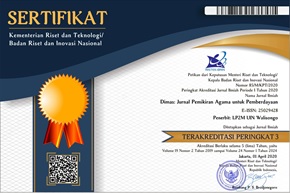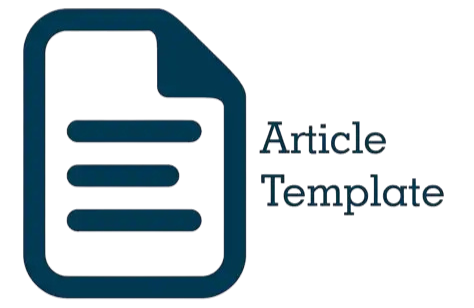Empowerment of Ecotourism Village: Integration of Community Empowerment and Asset-Based Community Development (ABCD) Method
DOI:
https://doi.org/10.21580/dms.2023.231.14463Keywords:
ABCD Methods, ecotourism village, empowerment, SROIAbstract
Empowering the community is an endeavor to prepare society for achieving progress, independence, and well-being within a sustainable social justice environment. Effective community empowerment must be tailored to the specific conditions of the target. Correspondingly, the objective of this program was to construct and empower an educational ecotourism village by implementing a hybrid method combining Sisdamas (Community Empowerment System) and Asset-Based Community Development (ABCD). This hybrid approach was expected to facilitate the identification of existing community assets and enhance synergy among stakeholders in creating an educational ecotourism village. Moreover, integrating these two methods could result in an effective, efficient, and sustainable coaching process. Cigugurgirang village possesses several assets that can be developed into an agricultural educational tourism area, including orange gardens, grape vineyards, and ornamental plant areas. They serve as the initial foundation for asset identification. The evaluation of the coaching process incorporated the Social Return on Investment (SROI) framework analysis, yielding a value of 10.16:1. Thus, every investment of 1 million rupiahs would generate a social value of 10.16 million rupiahs. In summary, the present community empowerment program had a multi-faceted impact, encompassing economic, educational, and social benefits. Its primary focus was establishing a sustainable and socially just environment, utilizing a combination of methods to maximize effectiveness. Furthermore, SROI analysis underscored the significant social value generated by the program's investments.
Downloads
References
Davies, Larissa E., Peter Taylor, Girish Ramchandani, and Elizabeth Christy. 2019. “Social Return on Investment (SROI) In Sport: A Model for Measuring The Value Of Participation In England.” International Journal of Sport Policy and Politics 11, no. 4: 585–605. https://doi.org/10.1080/19406940.2019.1596967.
Forrester, Gillian, Judith Kurth, Penny Vincent, and Mike Oliver. 2020. “Schools as Community Assets: An Exploration of the Merits of an Asset-Based Community Development (ABCD) Approach.” Educational Review 72, no. 4: 443–58. https://doi.org/10.1080/00131911.2018.1529655.
Gosselin, Véronique, Dorothée Boccanfuso, and Suzanne Laberge. 2020. “Social Return on Investment (SROI) Method to Evaluate Physical Activity and Sport Interventions: A Systematic Review.” International Journal of Behavioral Nutrition and Physical Activity 17, no. 1: 1–11. https://doi.org/10.1186/s12966-020-00931-w.
Harrison, Rebecca, Christian Blickem, Jonathan Lamb, Susan Kirk, and Ivaylo Vassilev. 2019. “Asset-Based Community Development: Narratives, Practice, and Conditions of Possibility—A Qualitative Study With Community Practitioners.” SAGE Open 9, no. 1. https://doi.org/10.1177/2158244018823081.
Hefni, Wildani, and Qurrotul Uyun. 2020. “Pendampingan Kader Pesantren Sebagai Aset Modal Sosial Dalam Penguatan Moderasi Beragama.” Dimas: Jurnal Pemikiran Agama Untuk Pemberdayaan 20, no. 2: 175. https://doi.org/10.21580/dms.2020.202.5452.
Mathie, Alison, and Gord Cunningham. 2003. “From Clients to Citizens: Asset-Based Community Development as a Strategy for Community-Driven Development.” Development in Practice 13, no. 5: 474–86. https://doi.org/10.1080/0961452032000125857.
Mgbako, Ofole, Emily H. Miller, · Anthony, F Santoro, Robert H. Remien, Noga Shalev, Susan Olender, et al. 2020. “COVID-19, Telemedicine, and Patient Empowerment in HIV Care and Research.” AIDS and Behavior 24, no. 7: 1990–93. https://doi.org/10.1007/s10461-020-02926-x.
Nugraha, Satya Budi. 2022. “Pemetaan Potensi Desa Ngesrepbalong Berbasis Masyarakat.” Dimas: Jurnal Pemikiran Agama Untuk Pemberdayaan 21, no. 2: 153–66. https://doi.org/10.21580/dms.2021.212.6877.
South, J, J Woodward, S Coan, A-M Bagnall, and S Rippon. 2021. “Asset Based Community Development: Evaluation of Leeds ABCD.” https://eprints.leedsbeckett.ac.uk/id/eprint/7640/.
Suyanto, Suyanto. 2019. “Pengembangan Eduecotourism Sebagai Upaya Peningkatan Kesejahteraan Masyarakat Pada Kawasan Pedesaan.” Dimas: Jurnal Pemikiran Agama Untuk Pemberdayaan 19, no. 1: 15–24.
Suyanto, Suyanto, Wildani Hefni, Qurrotul Uyun, Satya Budi Nugraha, Fajar Adhi Kurniawan, Muh. Luthfi Hakim, and M Sofyan Alnashr. 2022. “Digital Promotional Content Training to Increase Tourist Attraction.” Dimas: Jurnal Pemikiran Agama Untuk Pemberdayaan 19, no. 2: 301–20. https://doi.org/10.21580/dms.2020.202.5452.
Victoria br. Simanungkalit, Destry Anna Sari, Leonardo Sambodo, Samsul Widodo, Masyhud, Sri Wahyuni, Hengki Hermantoro, Christine Hartati, and Dian Vitriani. 2015. Handbook for Green Tourism Village Development. Edited by Cresentia Novianti. Ministry of Cooperatives and SMEs Republic of Indonesia Indonesia.
Wahyu Sururie, Ramdhani, Rohmanur Aziz, Wisnu Uriawan, and Yadi Mardiansyah. 2019. “Model KKN Sisdamas UIN Sunan Gunung Djati Bandung: Tantangan Dan Peluang Pelaksanaan.” Al-Khidmat 2, no. 1 (July): 24–28. https://doi.org/10.15575/JAK.V2I1.4832.
Widiastuti, Tuti, Eli Mihardja, and Prima Agustini. 2019. “Women’s Participation on Tourism Villages’ Management in the Dieng Pandawa Tourism Awareness Group.” ASEAN Journal of Community Engagement 3, no. 1: 122–38. https://doi.org/10.7454/ajce.v3i1.175.
Wirdayanti, Agnes, Amanah Asri, Bambang Dwi Anggono, Dwi Rudi Hartoyo, Enny Indarti, Hasyim Gautama, Hermin Esti S, et al. 2021. Guidelines for Tourism Villages. 2nd ed. Coordinating Ministry for Maritime Affairs and Investment Republic Indonesia. https://www.ciptadesa.com/2021/06/pedoman-desa-wisata.html.
Ye, X, Chen Chun-fang, W Ang, Deng Hu-cheng, and X U Chun-. 2002. “Asset-Based Community Development: An Overview.” In Asset-Based Community Development (ABCD) Workshop, 111–15. Bangkok: Synergos.
Downloads
Published
Issue
Section
License
Copyright
The copyright of the received article shall be assigned to the journal as the publisher of the journal. The intended copyright includes the right to publish the article in various forms (including reprints). The journal maintains the publishing rights to the published articles. Therefore, the author must submit a statement of the Copyright Transfer Agreement.*)
Licensing

This work is licensed under a Creative Commons Attribution-ShareAlike 4.0 International License.
In line with the license, authors are allowed to share and adapt the material. In addition, the material must be given appropriate credit, provided with a link to the license, and indicated if changes were made. If authors remix, transform or build upon the material, authors must distribute their contributions under the same license as the original.
_______
*) Authors whose articles are accepted for publication will receive confirmation via email and send a Copyright Transfer Agreement.









